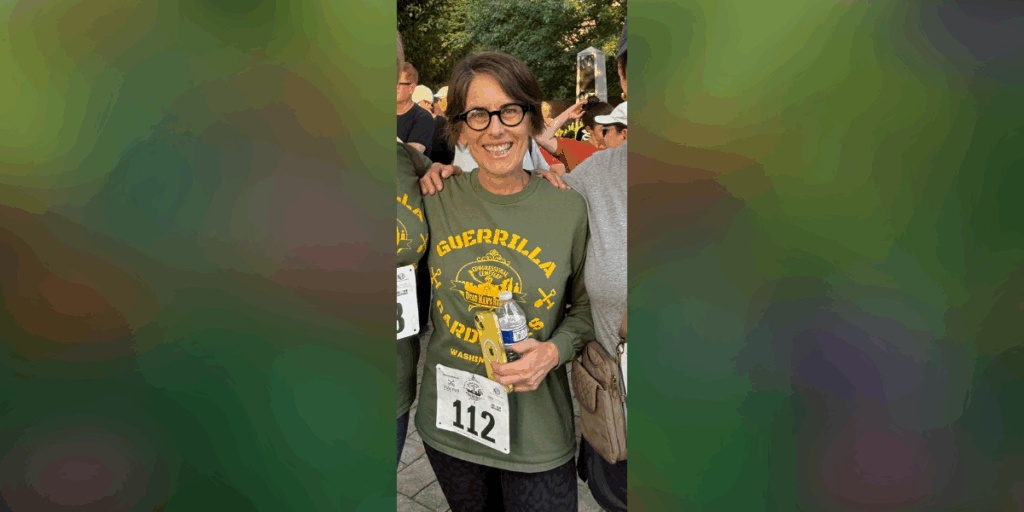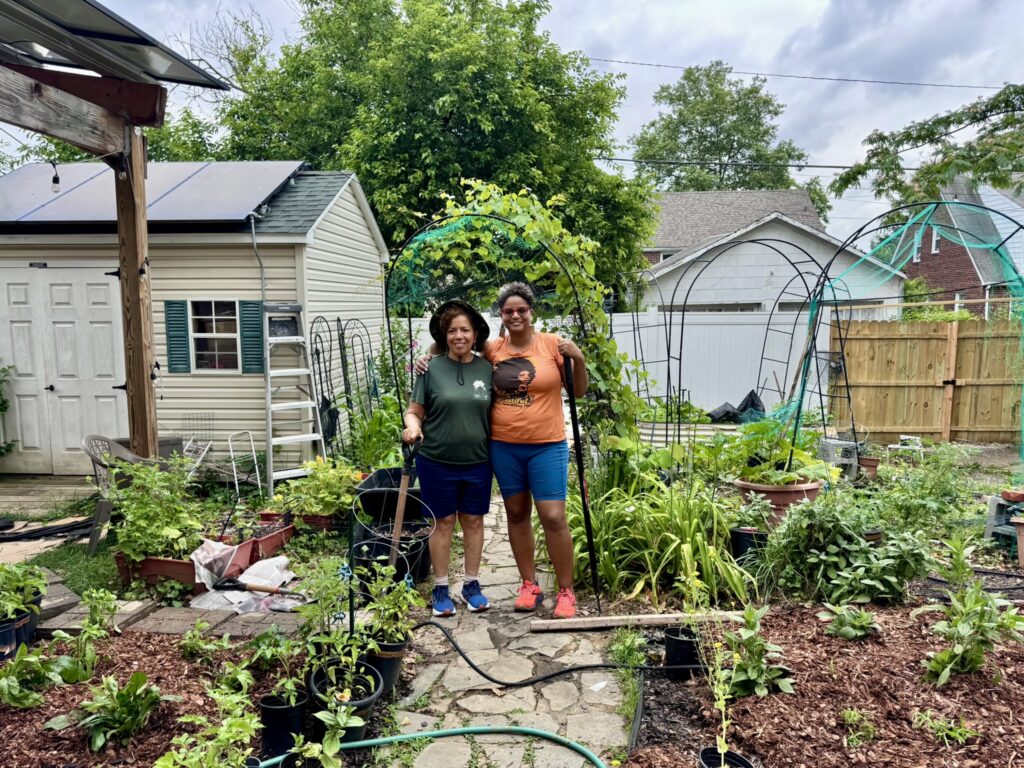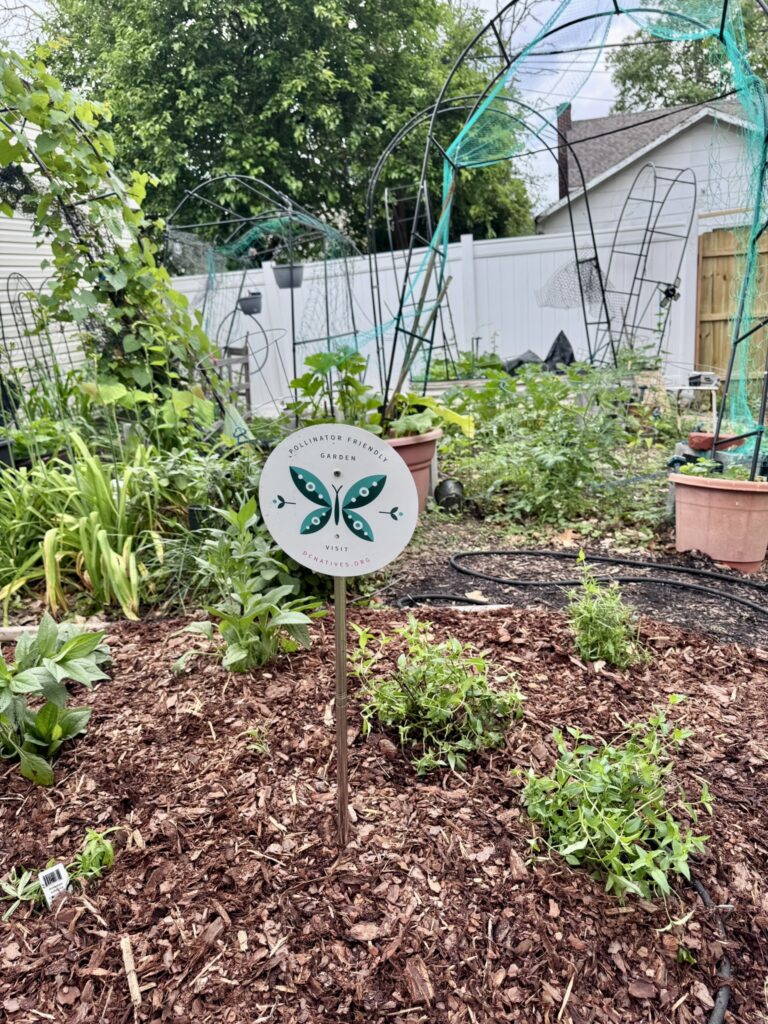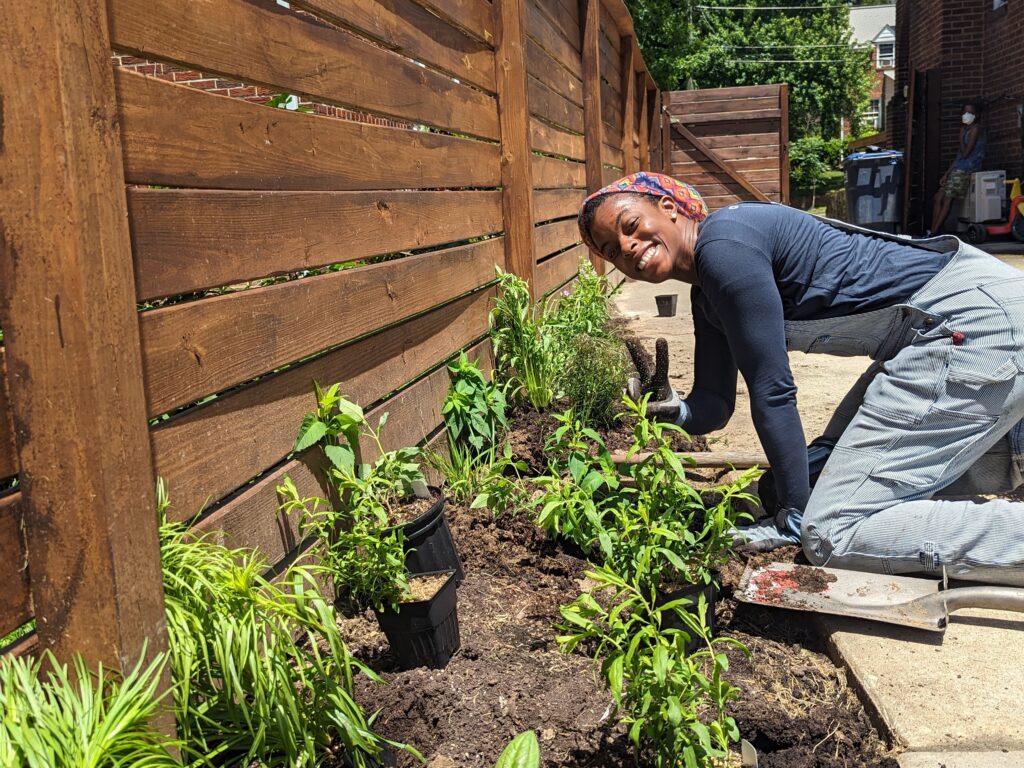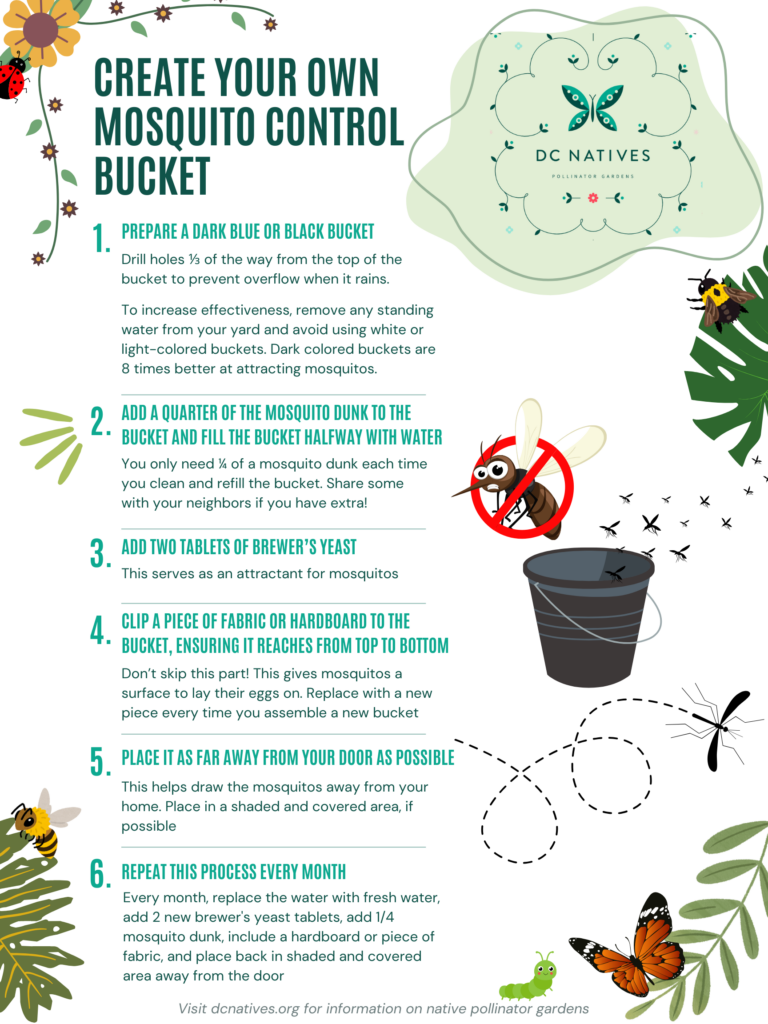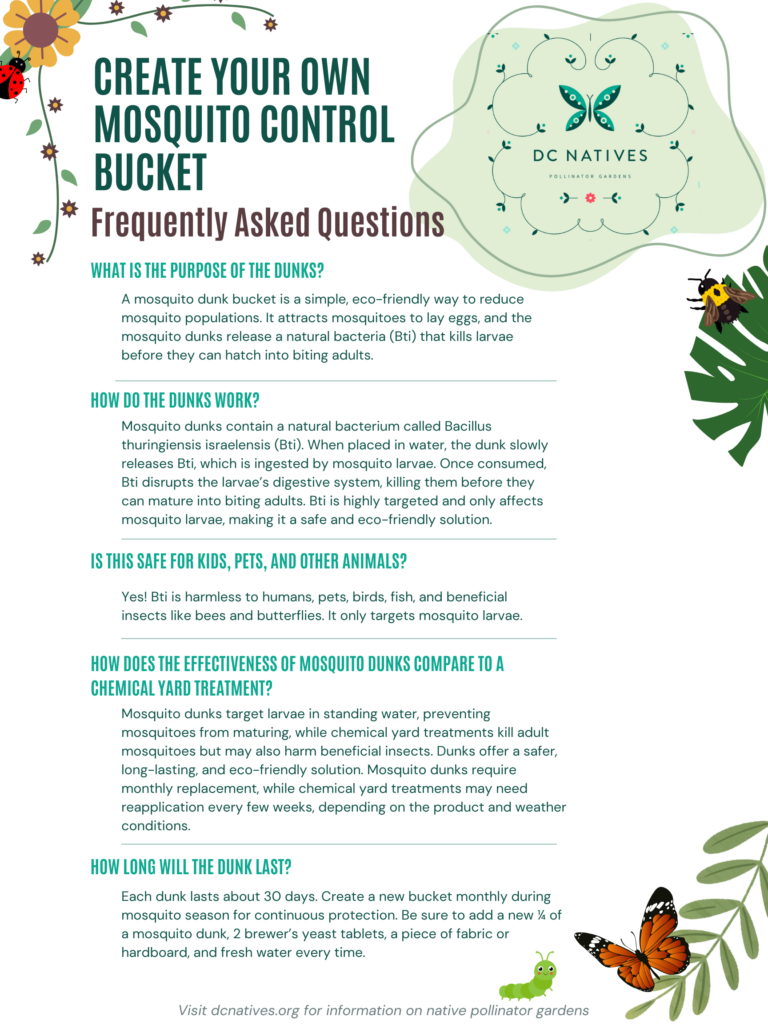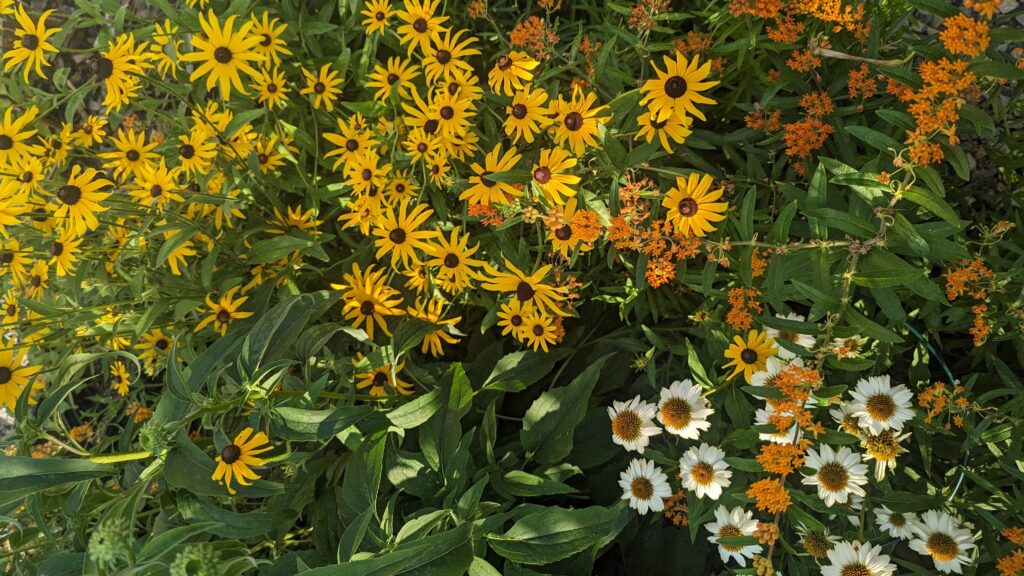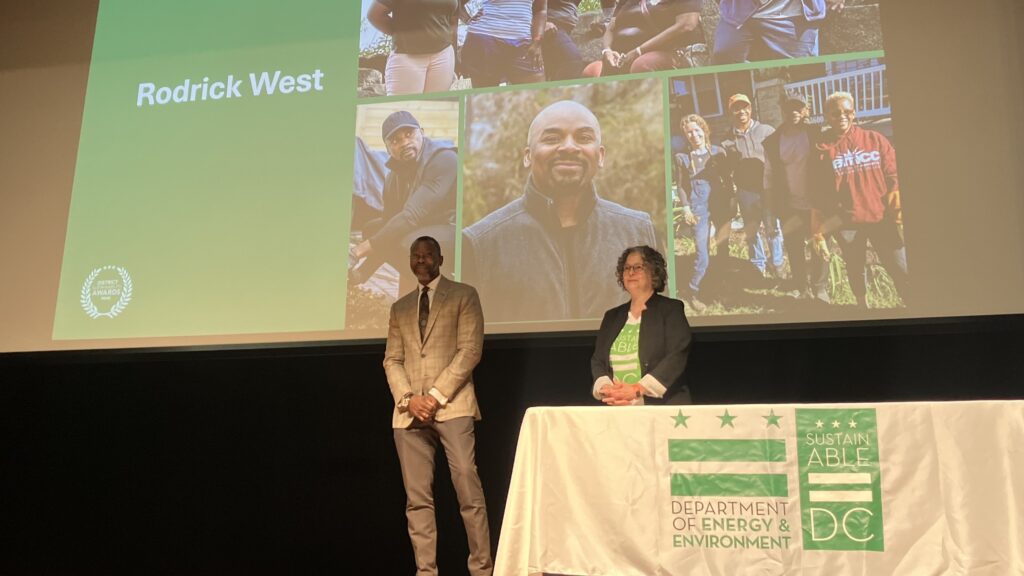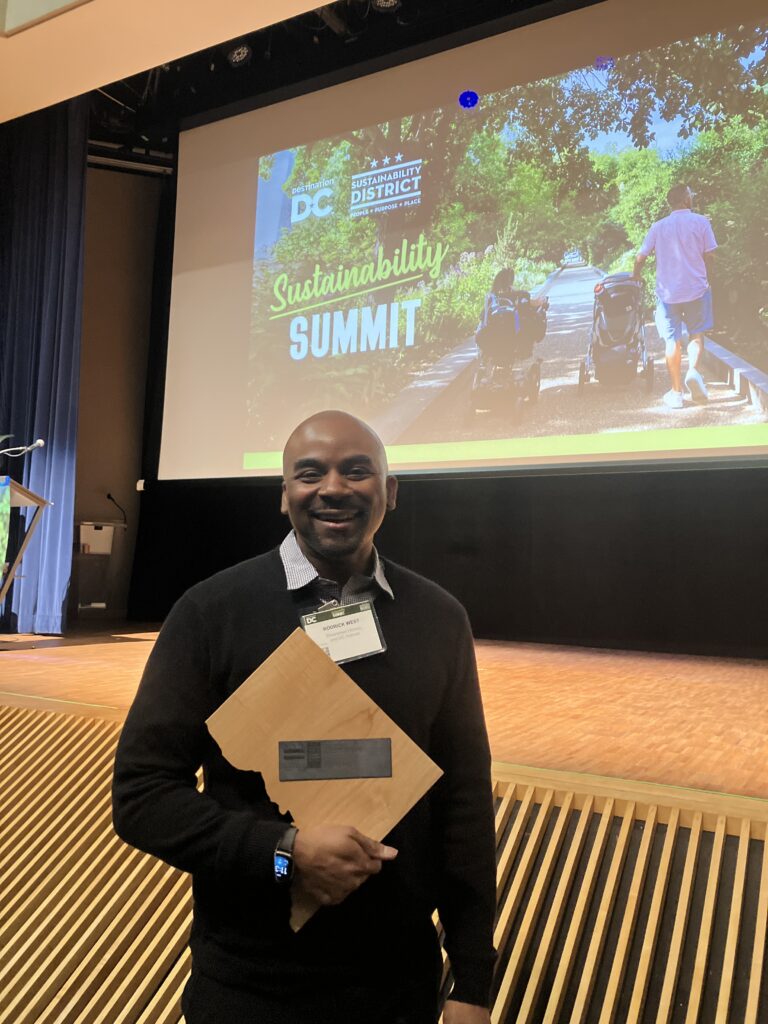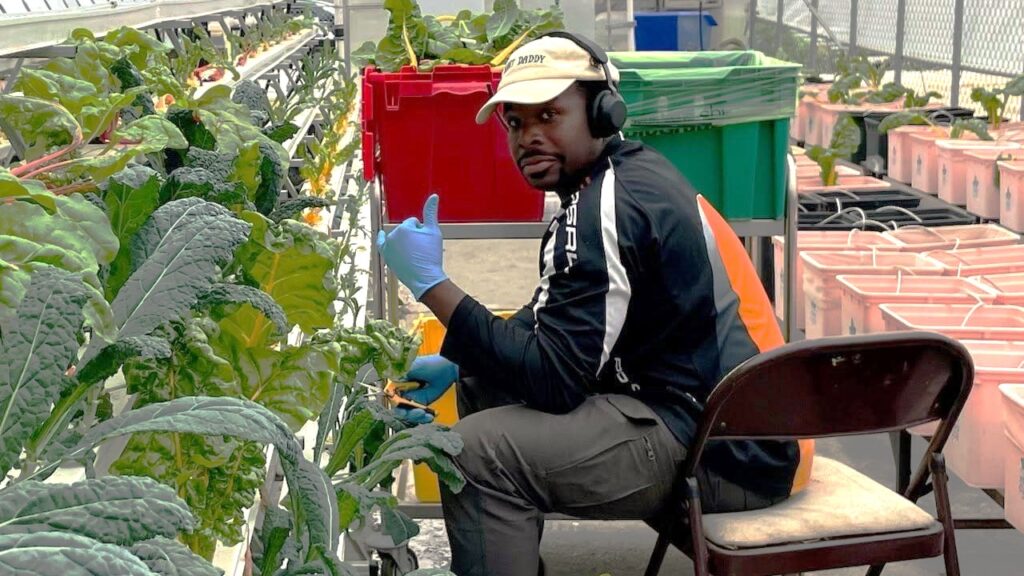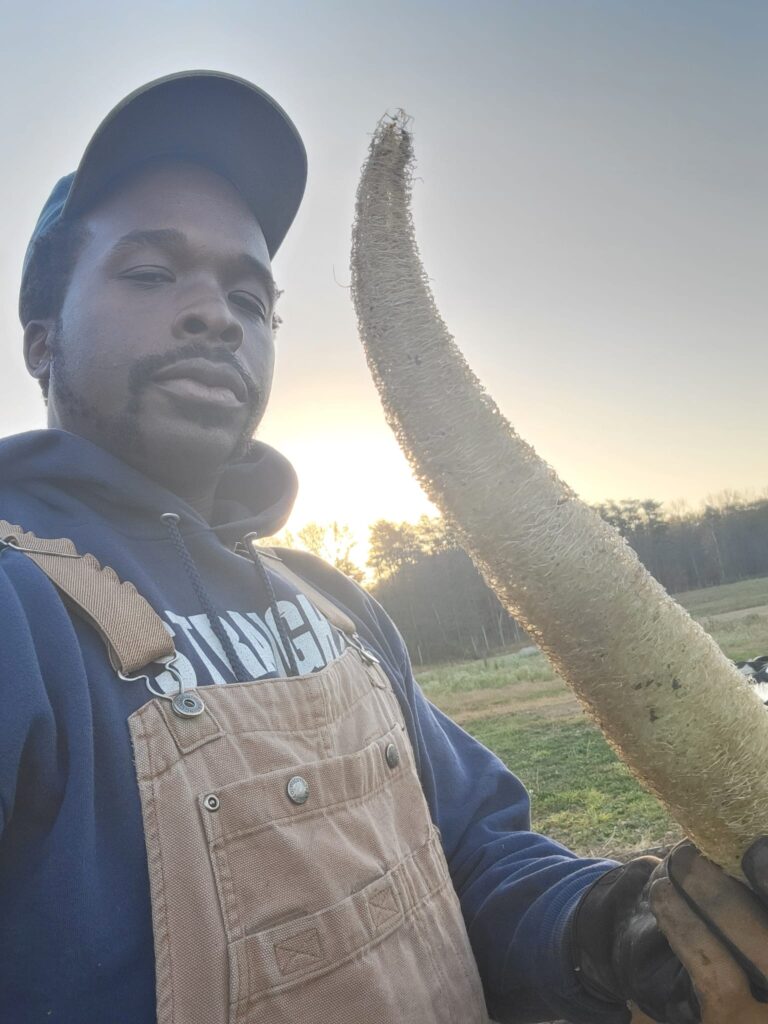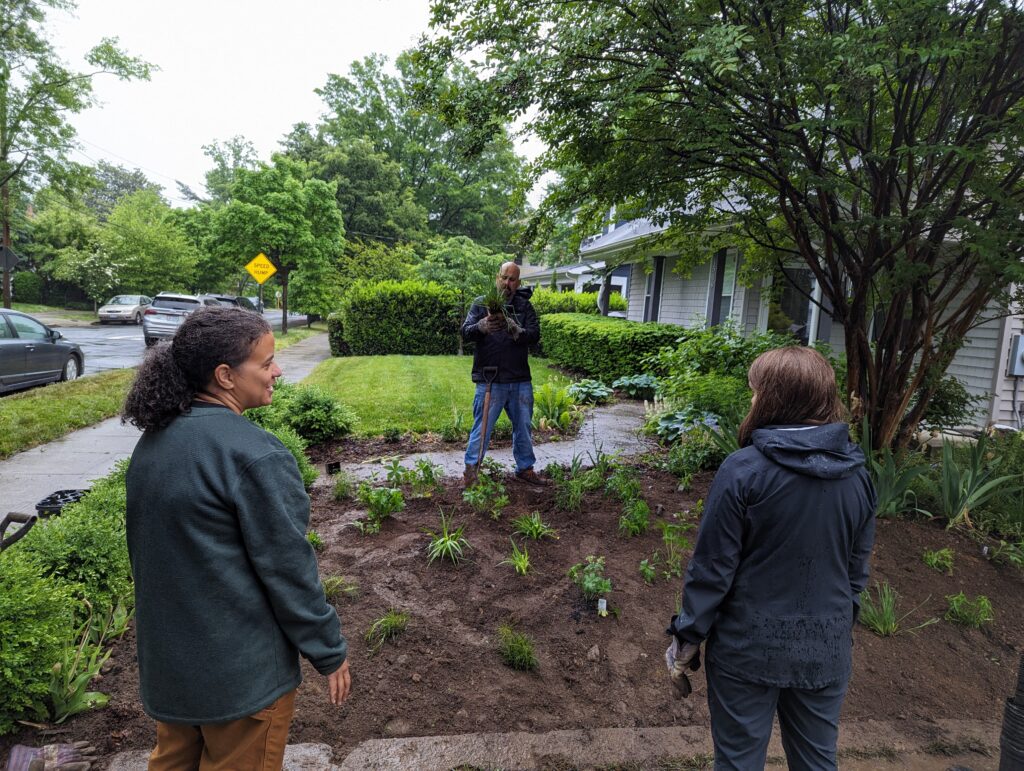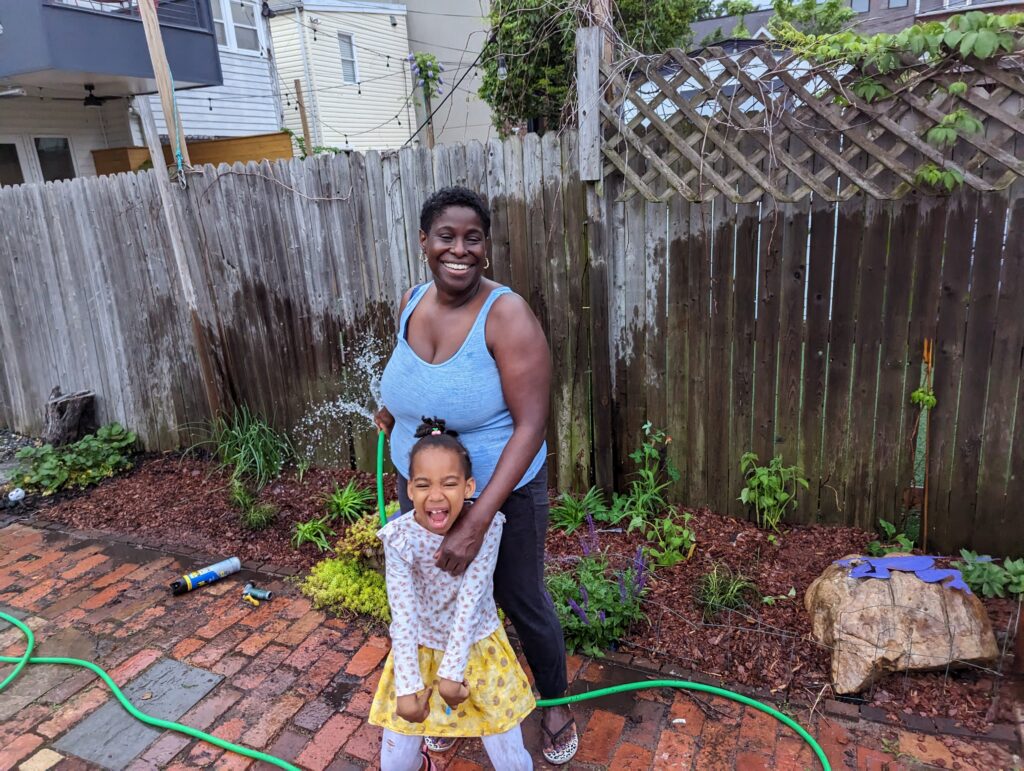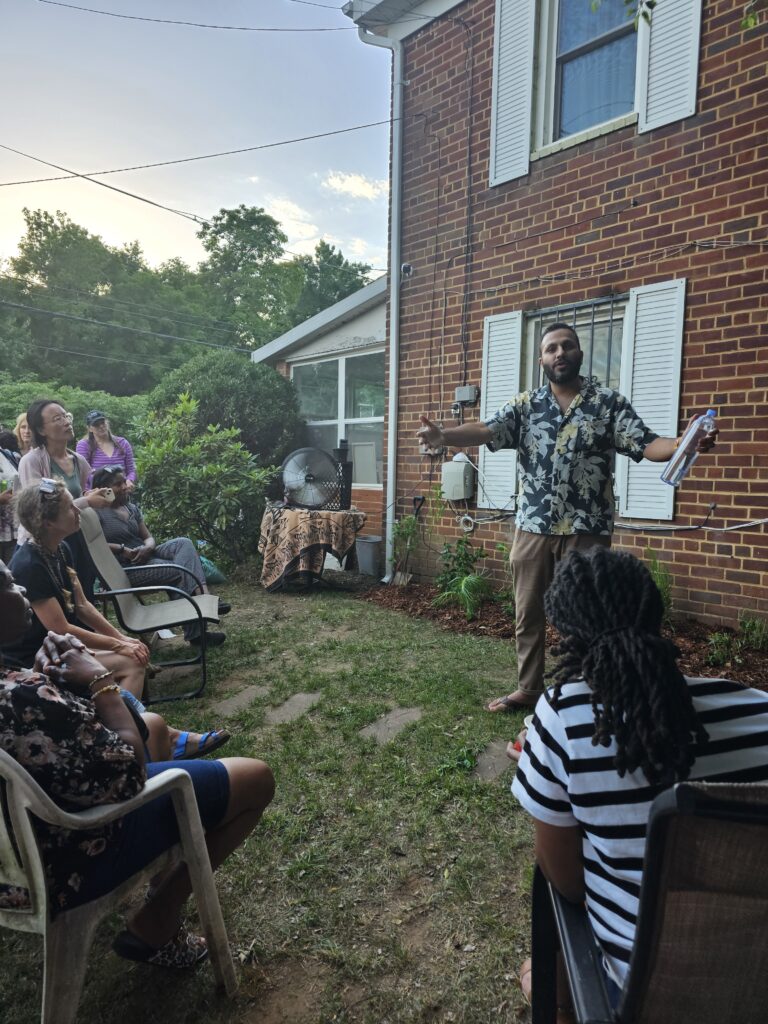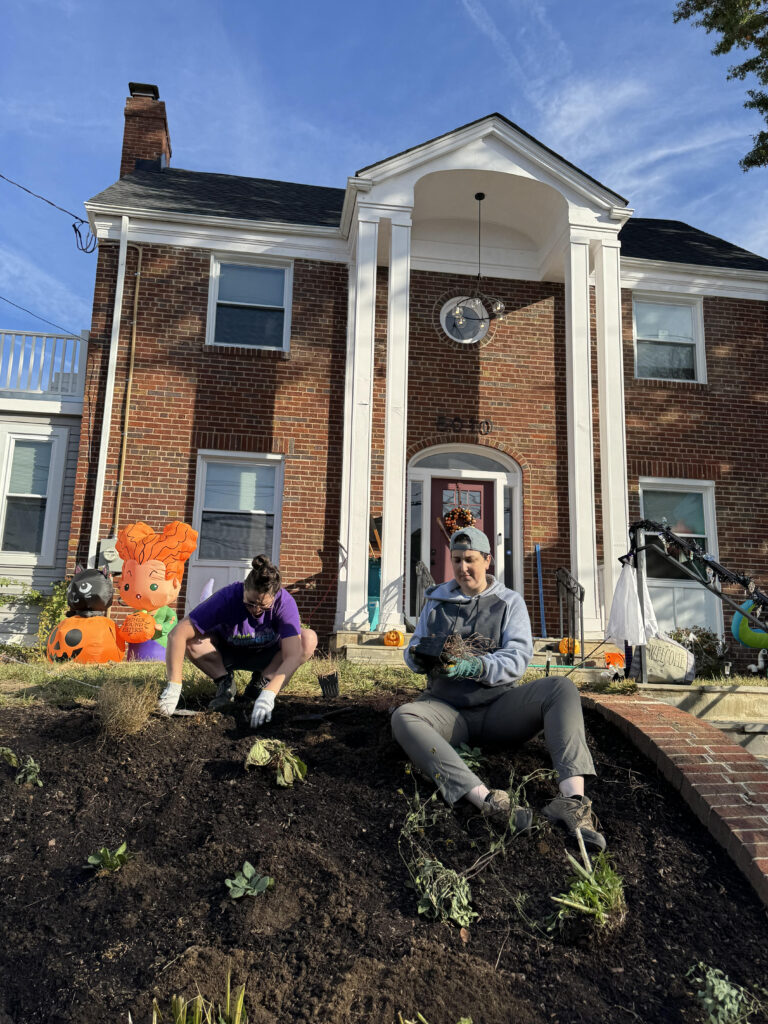Continuing to Heal Inside and Out: A Garden Update
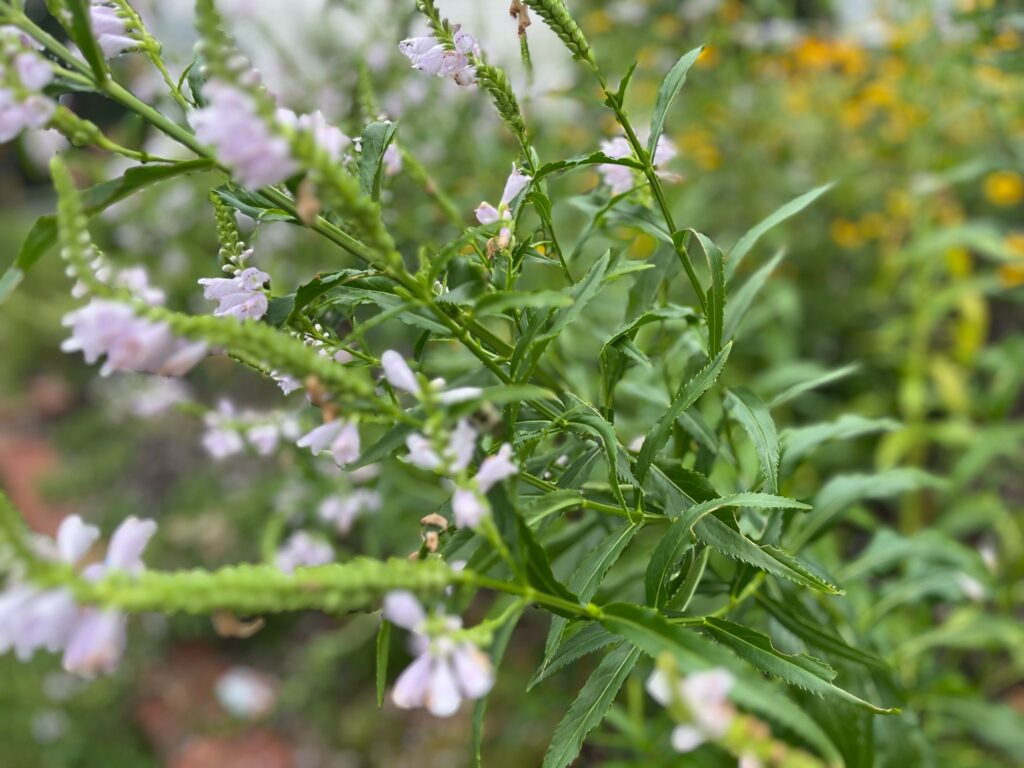
You may remember us reporting last year on the Healing Power of Pollinator Gardens and the impact that DC Natives made by installing a pollinator garden with the help of our garden partner and cancer survivor Aubri.
Gardening has been shown to to improve nutrition, mental health, and sleep among other benefits. It is also a great way to foster community and deepen belonging. Our community member Aubri experienced the benefits of her pollinator garden first hand.
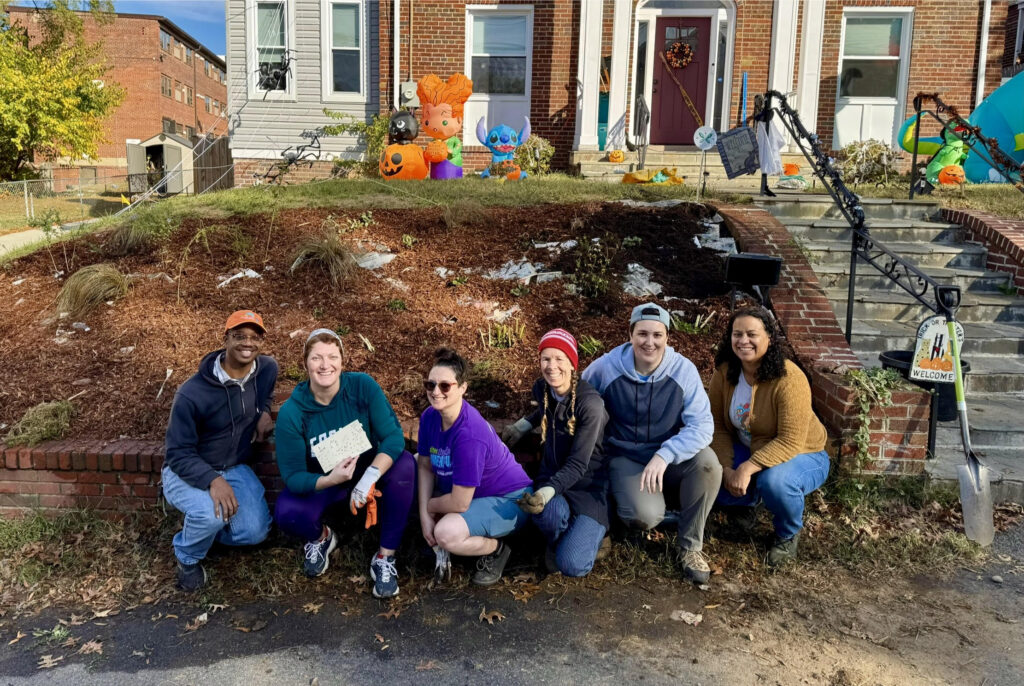
When we helped Aubri create her pollinator garden last year, she reflected on the experience: “It literally brought tears to my eyes. People just kept showing up with plants out of their own gardens, inspired to help me when I needed it. So many people gave their time, their energy, their resources, and their love to help a near stranger! I’ve only been in NE DC for 6 months, after 17 years in Petworth. It was an amazing affirmation that I made a great choice picking my new neighborhood, and that I already have a blossoming community here.”
Now, a year later, Aubri’s garden is thriving. The native plants that are installed in DC Natives pollinator gardens usually are establishing their root systems and getting settled into the environment in the first year of the garden. In the second and third years, the plants are growing and breaking up compacted soil with their roots by creating spaces for air and water to penetrate the solid. The plants also spread and reproduce through the habitat by rhizomes or seeds. The growth increases the density of the plants and flowers within the habitat which usually increases the amount of pollinators that are attracted to the habitat to feed, procreate, and grow. In it’s second year, Aubri’s garden is growing, feeding a large variety of pollinators, and adding to her joy.
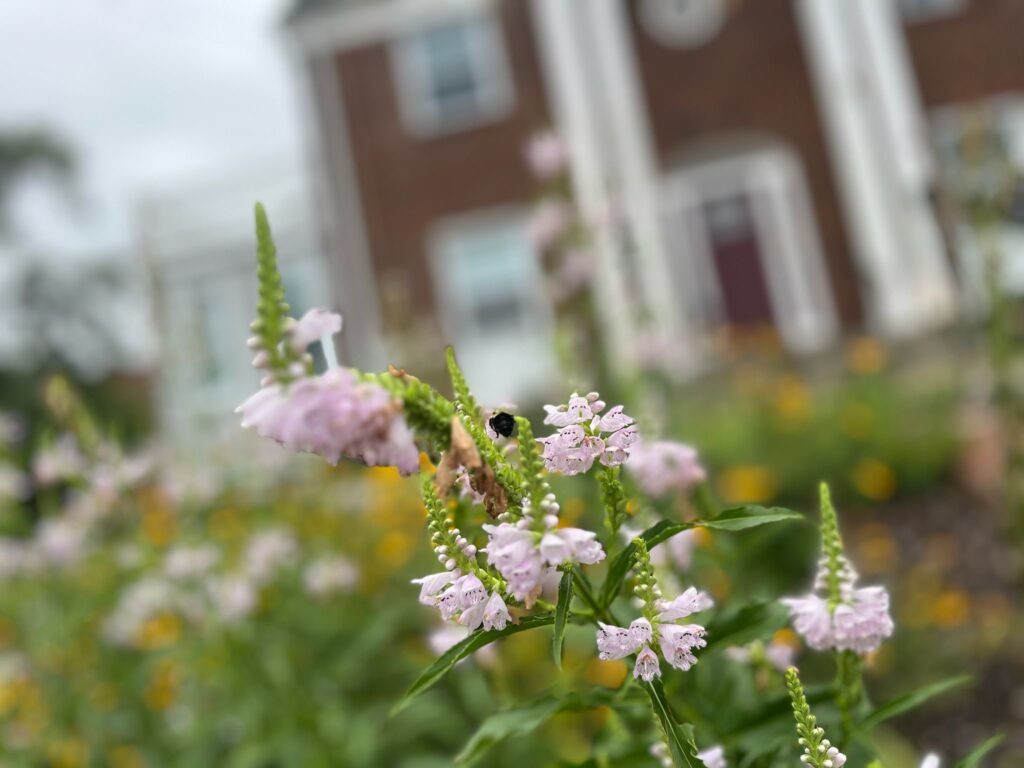
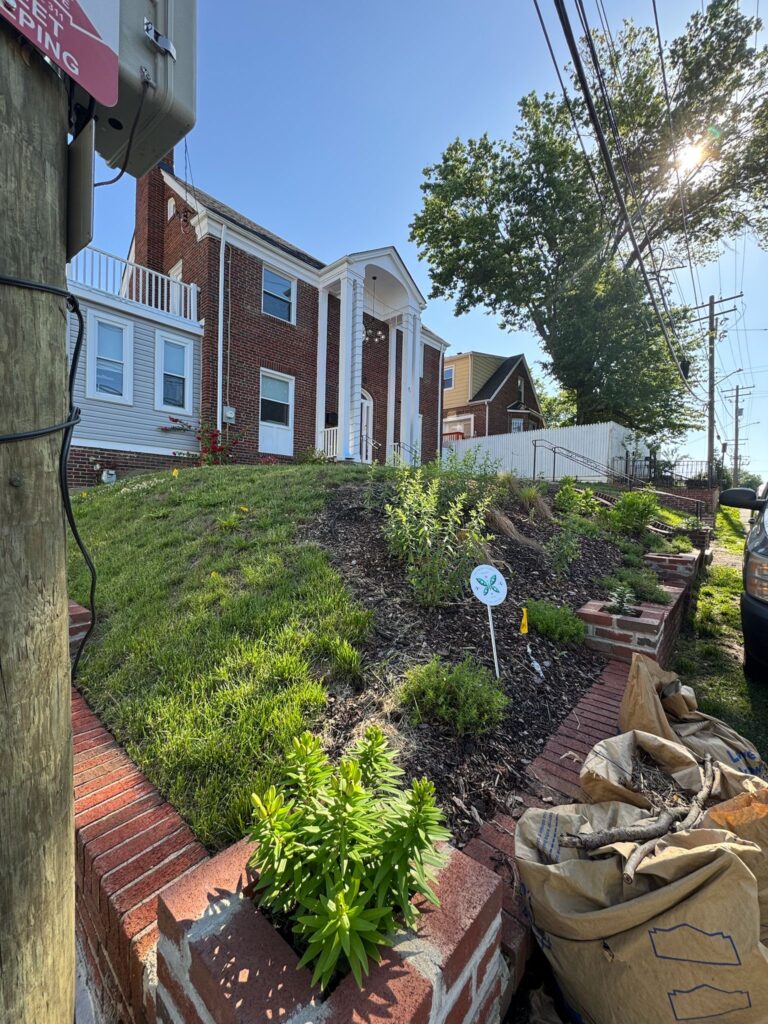
We wanted to provide an update and a look into how Aubri’s DC Natives pollinator garden continues to grow and help Aubri heal in the second year. Here’s what she shared with us:
“Working with DC Natives has been a life changing experience. I always thought I had a black thumb, but watching this garden grow so quickly and vibrantly, with stalks literally weighed down by the weight of their blossoms, it’s been an unexpected delight learning to garden this past year. My doctors are happy for it as well – you see my whole DC Natives journey started in 2024, just weeks after I learned I had breast cancer. Planting occurred right after surgery, the garden and I wintered together through radiation, and we both came alive again in spring 2025. It has made a huge difference in my recovery, having a reason to be outside in the fresh air and sun, to be stretching, lifting, and otherwise exercising my body. In the care of my garden (and yard). My doctors have noted how quick and simple my recovery has been, and I do think having something to do and something to look forward to made a difference. I cannot wait until my plants are ready to be split. I want to expand the garden to the other hillsides in my yard, and also share with others what was so generously shared with me. The legacy of these gardens will keep growing, just like the legacy of the DC Natives group, and its untiring, endlessly supportive leadership. They are making our city a healthier, more beautiful place to live one lawn at a time, and I could not be more grateful.”

We are so grateful for Aubri’s kind words and so glad that she’s cancer free and thriving alongside her beautiful garden. Stay tuned because we will provide an update on Aubri’s garden in its third year, so that you can see how DC Natives pollinator gardens grow with proper watering and maintenance.
